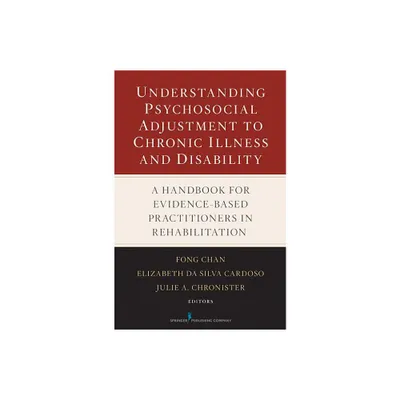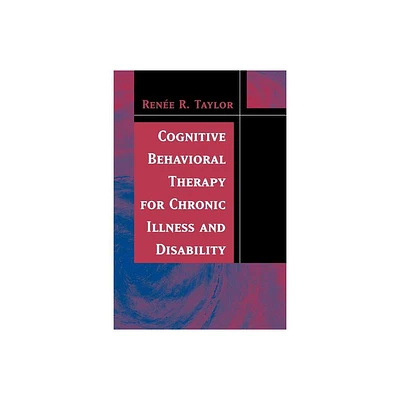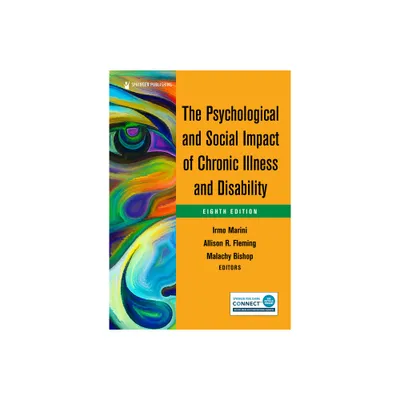Home
Understanding Psychosocial Adjustment to Chronic Illness and Disability: A Handbook for Evidence-Based Practitioners in Rehabilitation / Edition 1
Loading Inventory...
Barnes and Noble
Understanding Psychosocial Adjustment to Chronic Illness and Disability: A Handbook for Evidence-Based Practitioners in Rehabilitation / Edition 1
Current price: $90.00


Barnes and Noble
Understanding Psychosocial Adjustment to Chronic Illness and Disability: A Handbook for Evidence-Based Practitioners in Rehabilitation / Edition 1
Current price: $90.00
Loading Inventory...
Size: OS
*Product Information may vary - to confirm product availability, pricing, and additional information please contact Barnes and Noble
Rehabilitation practitioners face the difficult task of helping clients adjust to chronic illness or disability. This can be a long and trying process for both practitioner and client. With this handbook, however, practitioners and students can gain a wealth of insight into the critical issues clients face daily.
This book presents the dominant theories, models, and evidence-based techniques necessary to help the psychosocial adjustment of chronically ill or disabled persons. Each chapter is written from an evidence-based practice (EBP) perspective, and explores how important issues (i.e., social stigma, social support, sexuality, family, depression, and substance abuse) affect persons adjusting to chronic illness and disability.
Key features include:
• A review of psychopharmacological treatment options for depression, anxiety, and other disorders coinciding with rehabilitation
• The effect of rehabilitation on the family, including key family intervention strategies
• Strategies for using positive psychology and motivational interviewing in rehabilitation
• Multiculturalism and the effect of culture on the adjustment process
• Ancillary materials including an instructor's manual with a syllabus, examination items, PowerPoint presentation, and answers to class exercises
By incorporating research-based knowledge into clinical rehabilitation practice, health care professionals can ensure that people with chronic illness and disability receive only the best treatment."
This book presents the dominant theories, models, and evidence-based techniques necessary to help the psychosocial adjustment of chronically ill or disabled persons. Each chapter is written from an evidence-based practice (EBP) perspective, and explores how important issues (i.e., social stigma, social support, sexuality, family, depression, and substance abuse) affect persons adjusting to chronic illness and disability.
Key features include:
• A review of psychopharmacological treatment options for depression, anxiety, and other disorders coinciding with rehabilitation
• The effect of rehabilitation on the family, including key family intervention strategies
• Strategies for using positive psychology and motivational interviewing in rehabilitation
• Multiculturalism and the effect of culture on the adjustment process
• Ancillary materials including an instructor's manual with a syllabus, examination items, PowerPoint presentation, and answers to class exercises
By incorporating research-based knowledge into clinical rehabilitation practice, health care professionals can ensure that people with chronic illness and disability receive only the best treatment."


















